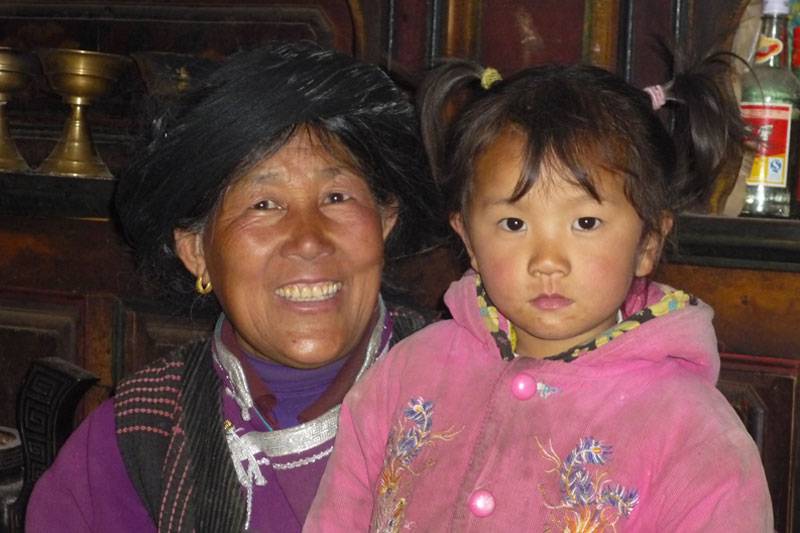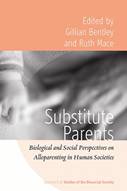
This novel paradigm of evolutionary anthropology focuses on human ecology (human diversity, life history, demography, behaviour and also culture) from an adaptive perspective. The research group is coordinated by Ruth Mace, Mark Dyble, Emily Emmott and Gul Deniz Salali. We use a combination of behavioural ecological modelling, field studies (including ‘natural experiments’), careful statistical analyses of longitudinal demographic datasets, mathematical modelling, computer simulations, and phylogenetic cross-cultural comparative methods to explore the extent to which human behaviour, culture and biology can be understood as adaptive responses to environmental conditions.
Firmly embedded in an international network of researchers, our working group explores the evolution of human life histories and family structures, bio-cultural diversity as well as the transmission of cultural innovations and norms, particularly in relation to reproductive decision-making, kinship systems and co-operation. Our fieldwork produces original data on populations characterised by a full range of human biosocial patterns, including high fertility groups in Africa and Asia, low fertility populations in the UK and Europe, and a major initiative on hunter-gatherers in the Philippines and the Republic of Congo.
Our research attracts major funding, such as an ERC Advanced Award to Ruth Mace on 'The Evolution of Cultural Norms in Real World Settings' (€1.8M). Ruth Mace also collaborates with the Chinese Academy of Sciences on kinship systems in China, and develops China's first research presence in human behavioural ecology with the help of a British Academy International Partnership Grant. Gul Deniz Salali holds a British Academy Fellowship and Small Research Grants for her fieldwork on social learning, cooperative childcare and cultural evolution in Congo hunter-gatherers. Alumni of the group hold lectureships and research fellowships at many distinguished institutions in the UK and overseas.
Research Projects
- Evolutionary demography and life history of traditional African and Asian populations, including hunter-gatherers
- Phylogenetic approaches to cultural evolution, including comparative methods for testing cross-cultural hypotheses, and understanding the origins of kinship, family and social systems
- Matriliny in China
- Prosocial norms, including a case study in Northern Ireland
- Evolution of human kinship and social organisation
- Family structure, parental investment and child development in the UK
- Cultural transmission and the establishment of social norms, including contraception and other health-related behaviour
- Diseases of modernity: comparing physical activity levels, social networks and childrearing practices in hunter-gatherers and Western societies, and the implications on mental health and wellbeing
- Social learning, cooperative childcare and cultural evolution in Congo hunter-gatherers
- Dietary patterns, immune response and physical activity levels in transitioning hunter-gatherers of the Congo Basin
Research group
HEEG - Human evolutionary ecology group
Selected Publications
- Arnot, M., Brandl, E., Campbell, O. L. K., Chen, Y., Du, J., Dyble, M., … Zhang, H. (2020). How evolutionary behavioural sciences can help us understand behaviour in a pandemic. Evolution, Medicine, and Public Health, 2020(1), 264–278.
- Chaudhary, N, Salali, GD, Thompson, J, Rey, A, Gerbault, P, Stevenson, EGJ., ... Mace, R., Vinicius, L, Migliano, AB 2016. Competition for cooperation: variability, benefits and heritability of relational wealth in hunter-gatherers. Scientific Reports 6
- Currie TE, Greenhill S, Gray R, Hasegawa T, Mace R. 2010. The rise and fall of political complexity in Island South-East Asia and the Pacific. Nature 467: 801–804
- Dyble M, ... Vinicius L, Mace R, Migliano AB. 2015. Sex equality can explain the unique social structure of hunter-gatherer bands. Science 348: 796-798
- Dyble, M…. Migliano, AB. 2019. Hunter-gatherers in transition to agriculture have less leisure time. Nature Human Behaviour 3:792–796
- Emmott, E.H., Myers, S. and Page, A.E., 2021. Who cares for women with children? Crossing the bridge between disciplines
- Lamba S, Mace R. 2011. Demography and ecology drive variation in cooperation across human populations. Proceedings of the National Academy of Sciences of the USA 108: 14426–14430
- Lamba S, Mace R. 2013. The evolution of fairness: Explaining variation in bargaining behaviour. Proceedings of the Royal Society B: Biological Sciences, 20122028– doi:10.1098/rspb.2012.2028
- Mace R, Alvergne A. 2012. Female reproductive competition within families in rural Gambia. Proceedings of the Royal Society B: Biological Sciences 279: 2219-2227
- Mace R. 2008. Reproducing in cities. Science 319: 764–766
- Mace R. 2010. Social behaviour in humans. In: T. Szekely et al. (eds.), Social Behaviour: Genes, Ecology and Evolution. Cambridge University Press, Cambridge, pp. 395–409
- Salali GD, ... Mace R, Vinicius L, Migliano AB 2016. Knowledge-sharing networks in hunter-gatherers and the evolution of cumulative culture. Current Biology 26: 2516-2521
- Salali, G. D., Chaudhary, N., Bouer, J., Thompson, J., Vinicius, L., & Migliano, A. B. (2019). Development of social learning and play in BaYaka hunter-gatherers of congo. Scientific reports, 9(1), 11080.
- Sear R, Mace R. 2008. Who keeps children alive? A review of the effects of kin on child survival. Evolution and Human Behavior 29: 1–18
 Close
Close


